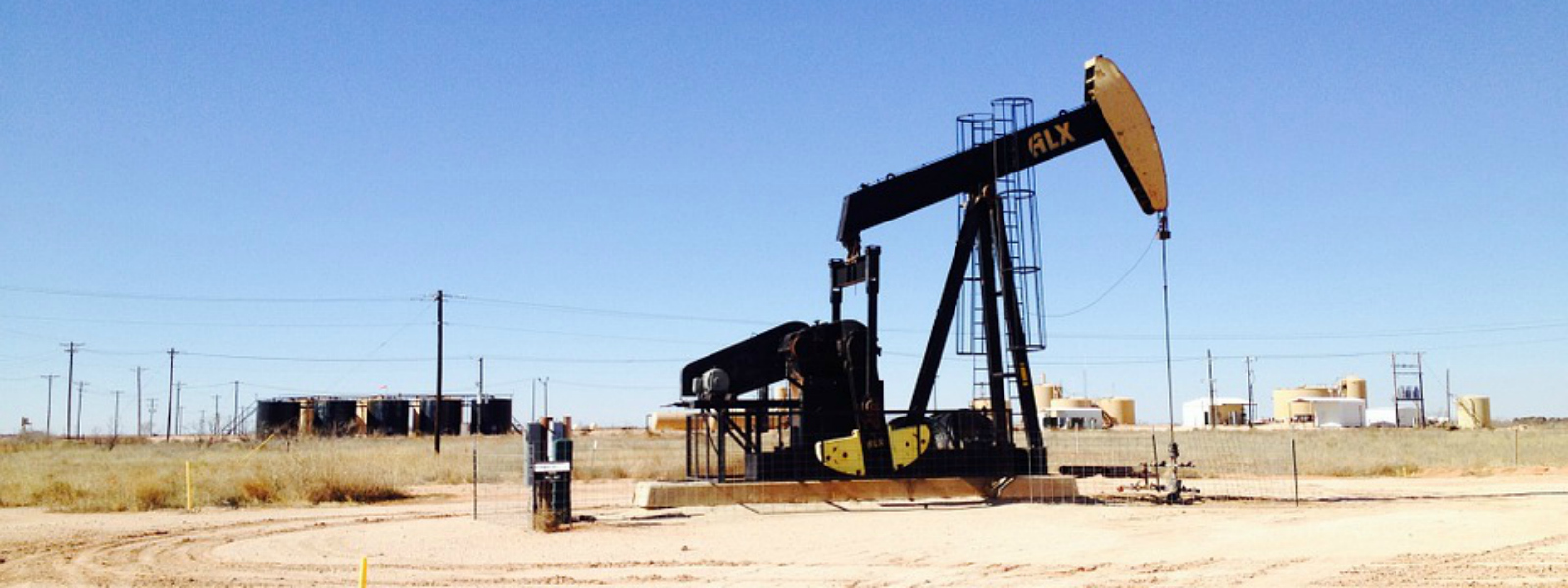 |
Professor Karen Turner Director, Centre for Energy Policy karen.turner@strath.ac.uk |
 |
Oluwafisayo Alabi Research Assistant, Centre for Energy Policy oluwafisayo.alabi@strath.ac.uk |
1. What are your views on the potential social, community and health impacts of an unconventional oil and gas industry in Scotland?
CEP has been active in ‘questioning the questions’ around fracking. We are encouraged to see this as the first question asked in the consultation as the crux of the debate really should be what can fracking/unconventional oil and gas do for Scotland? While the question set out doesn’t address all aspects that would may be triggered by our own, it is a good place to start.
However, in attempting to respond to this question, it is difficult to give a fully objective response in the absence of a more comprehensive and probing evidence base. That is, an evidence base that covers, among other things the counter-question of ‘what happens if we don’t frack’ and one that is informed by more extensive knowledge of the resource that is actually there to be fracked.
2. What are your views on the community benefit schemes that could apply, were an unconventional oil and gas industry to be developed in Scotland?
The key point is that community ownership models can play a role in converting potential ‘losers’ into beneficiaries, thereby changing the nature of the stakeholder relationship. However, such a means of ‘compensation’ is dependent, among other things, on commercial conditions. In the case of fracking, one issue is whether or not companies should and/or will sign up to a government-backed industry pledge to make up-front payments to communities hosting wells.
One important question could be whether Scotland could emulate the Shale Wealth Fund currently under consultation by the UK government? In terms of government taking responsibility for assuring that returns/compensation to affected communities are actually delivered, a more basic question that needs to be addressed is whether whatever process and rate of return is decided upon will be considered adequate and equitable by those affected by fracking, and by the wider public.
3. What are your views on the potential impact of unconventional oil and gas industry on Scotland’s economy and manufacturing sector?
In the context of the current shipments of shale gas from the US to Scotland, a crucial point arises with the use of the shale gas at Grangemouth as a feedstock for petrochemical production. This is an important production activity for Scotland, involving highly skilled and high value jobs, and which supports significant local supply chain activity and further jobs therein. The Grangemouth site, one of only four chemical sites in the EU capable of using ethane gas to manufacture ethylene, is accounted to be responsible alone for around 4% of Scotland’s GDP (according to INEOS’s own figures)
Thus, if the use of shale gas is enabling this activity to continue in Scotland, a crucial issue is the preservation of this activity and permitting the employment and wage income it generates to be spent in the Scottish economy. If the shale gas used in Scottish petrochemical plants were sourced domestically rather than being imported it would support additional direct and supply chain jobs linked to the on-shore industry. If it also means lower costs of production, this may improve the competitiveness of the activity, thereby potentially increasing export demand further rounds of expansionary ‘multiplier’ impacts in the Scottish economy.
However, while the KPMG report attempts to measure the potential wider economic impacts, the evidence is not sufficient to make a full assessment in response to this question. It is based on very simple (and somewhat opaque techno-economic analysis), with no full economy-wide impact analysis across sectors, including, importantly, potential impacts on competitiveness in petrochemical production at Grangemouth. A core issue is that this (and other evidence) are based on simple assumptions regarding production levels (number of wells). In the absence of exploration to determine the resource in question and more careful micro- and economy-wide level analyses, it is difficult to take a view in response to this question.
4. What are your views on the potential role of unconventional oil and gas in Scotland’s energy mix?
The shale gas debate constitutes a good example of how energy policy discussion tends to give insufficient attention both to (a) just what we need an energy MIX for, and (b) to the demand side. Energy policy debate is often framed as being about electricity generation. However gas is also widely used for cooking and space heating in homes, industry and public buildings, and to provide heat in industrial processes. As noted above, gas (or, more properly, associated non-gas liquids produced with gas, such as ethane) is a key petrochemical feedstock in a range of industrial processes to produce goods and services that we consume every day (it is difficult to think of a room in our homes where we won’t have products that have involved petrochemicals in their production, or a day when we don’t rely on them).
This latter point is a key one in the context of the INEOS shipments of US shale gas ethane that began arriving in Scotland in September 2016. This ethane is to be used as a feedstock in the petrochemical industry at Grangemouth. These petrochemicals are used to make paints, household cosmetic products, plastics for medical instruments and a range of other products that we use as both luxuries an necessities every day of our lives. Due to the geology under the central belt, Scottish shale is likely to be richer in non-gas liquids than the English resource (see report by Monaghan commissioned by the British Geological Survey for Department of Energy and Climate Change in 2014), meaning that there are implications in terms of the yield and, thus, the competitiveness of the potential domestic resource relative to imports from the rest of the UK or elsewhere.
More generally in terms of our energy mix, the question is less one of whether shale gas would lead to lowering of domestic heating bills now. Rather, as we have noted in our response to Q1, the question should really be what happens if we don’t explore for and produce this gas? Gas is likely to have to remain part of our energy mix for quite some time – and low carbon solutions such as hydrogen may rely on gas. If North Sea gas production continues to decline and we become more reliant on imported gas, what will THIS do to domestic heating bills and fuel poverty, and what would be the resulting health impacts? Scottish Government data shows that changes in energy poverty in Scotland have been closely linked to changes in energy prices. Could fracking for gas on Scottish land buffer the impacts at all? Until a few test wells have been drilled and fracked, we will not know the magnitude of Scotland’s shale gas resource that could potentially enter the domestic gas supply, and the operational cost of extracting it. However, over time, could domestic shale gas extraction help to provide a ‘buffer’ to externally imported gas price increases and related impacts on fuel poverty?
5. What are your views on the potential environmental impacts of an unconventional oil and gas industry in Scotland
This question falls outwith our area of expertise. However, we would raise an issue regarding the location of environmental impacts and what the Scottish Government can take responsibility for. Concerns have been raised, in the context of the shipments of US shale gas to Scotland, of the morality of using a resource that has been fracked in other countries. In assessing the wider concern of the environmental ‘footprint’ of our energy consumption, a fundamental point to consider is that, if we want to take responsibility for the environmental consequences of our own consumption, the only way that we can do so effectively and fully control the impacts is to “do it at home” (The Centre for Energy Policy has previously commented on the issue of securing Scotland’s electricity supply via imports generated using nuclear technology. See point (1) on p.6). Only then could the Scottish government fully control the environmental, health and safety regulatory practices of such unconventional gas extraction (The Royal Society of Edinburgh published an Advice Paper in 2015 that includes focus on this issue).
6. What are your views on the potential climate change impacts of unconventional oil and gas industry in Scotland?
Shale gas could add to the greenhouse gases we produce in basically two ways. Burning more fossil fuels will result in more CO2 in the atmosphere. However, methane itself is a greenhouse gas and is 32 times more potent in this respect than carbon dioxide. CO2 and methane emissions from a Scottish industry are not likely to be the same as those that have been reported because of the different regulatory framework and infrastructure. Moreover, any future Scottish industry would utilise recent technological advances that restrict or capture emissions (see report by Bond et al. (2014) published by Climate Change). What share of total greenhouse gas emissions would potential greenhouse gases from fracking sites account for? For instance animal husbandry currently accounts for a greater share of emissions than the combined conventional and unconventional oil and gas industry.
More generally, the main climate change impact we should be concerned about is that from continued use of hydrocarbons. However, this applies to how we use gas as well as how we produce it. There are ways that gas can be used more cleanly (e.g. hydrogen with linked CCS) and efficiently to limit emissions.
7. What are your views on the regulatory framework that would apply to an unconventional oil and gas industry in Scotland?
Several key reports have concluded that the risks of onshore extraction of shale gas are minimal, provided best practice is followed and the industry is well regulated. Many of the concerns about environmental and health impacts are already covered by existing regulation, though the Scottish government expert group report did highlight some gaps (see report by the Royal Society and Royal Academy of Engineering published in 2012 Also see report by the Australian Council of Learned Academies (ACOLA)). In order to make an informed decision about the potential risks of on shore unconventional gas in Scotland we need to understand what is covered by existing regulation, what gaps there are, and how the regulators plan to resource their activities. If an industry was to take off at scale, would there be enough skilled and well-resourced regulators in place to ensure that best practice is followed? It is also necessary to consider the impact of the Brexit vote in terms of the continued applicability, or not, of EU regulations.
A future industry must be regulated in such a way that the cost of decommissioning and monitoring fracking sites is borne by the industry and does not fall to the taxpayer. However, it is worth considering that given the legacy of Scotland’s industrial past, development on contaminated brownfield sites might result in an overall positive benefit. As an example, the sites developed for the Glasgow Commonwealth Games were remediated brownfield sites, which resulted in an overall reduction of vacant and derelict land in the East End of Glasgow (see Independent Expert Scientific Panel – Report on Unconventional Oil And Gas)
8. Overall, and in light of the available evidence, what do you think would be the main benefits, if any, of an unconventional oil and gas industry in Scotland?
The main POTENTIAL benefits (bearing in mind that we don’t actually know how much resource is there to extracted, or could be extracted in an economically feasible manner) would seem to be flexibility in our energy mix and economic impacts. A key consideration in considering economic impacts is that as our energy mix changes, we are replacing one thing with another – and, therefore, one supply chain with another etc. A potentially important benefit from an unconventional oil and gas industry – as with, for example, transport and storage for CCS that utilises existing oil and gas industry infrastructure and skills – is that it may help us retain (if not add to) benefits already enjoyed through the existence of our ‘energy economy’.
We would also recommend consideration of how this type of question is put. The debate around energy supply in the UK and Scotland is too often hijacked by over-simple questions. If you ask “should we have fracking for shale gas?, or “should we build new nuclear power stations”, or “should we develop large windfarms or tidal lagoons”, the answer too often appears to be “no”, for various environmental, societal or safety reasons. However, all activity has risks and consequences, and an over-rigorous application of the precautionary principle would result in us doing nothing. Doing nothing is simply not an option: the country needs energy for heating our homes, cooking our food, powering our industries, and in the case of gas, as a feedstock for consumer goods. A much more useful approach, though a considerably harder question to answer, is to consider the energy system as a whole. In this context, we must ask what the best way is to continue to provide a decent standard of living for all while minimising the environmental impact on our planet.
9. Overall, and in light of the available evidence, what do you think would be the main risks or challenges, if any, of an unconventional oil and gas industry in Scotland?
All industrial activity has risks and these risks must be seen in the context of the benefits that such activity brings to society and by the regulation put in place to mitigate them. Fracking is a technique, not an industrial activity, and it is used in a range of other industrial activities. Banning ‘fracking’ could limit the development of other industries, in particular the development of geothermal energy from rocks with relatively low-grade heat, known as enhanced geothermal systems. Many of the environmental and safety objections that have been raised against fracking are equally valid for other geological engineering applications such as geothermal heat extraction and geological storage of CO2. The latter technology - carbon capture and storage (CCS) - could be a key to providing a bridge from our current reliance on fossil fuels to a truly renewable energy system. In all of these industries engineering solutions exist to minimise or mitigate the risks and ongoing investment in research will continue to bring down costs and drive risk mitigation solutions.
The main challenge may be that there is simply not enough useful and economically viable oil and gas to be extracted by unconventional means. This issue could be addressed by engaging in some exploration activity.
10. If you have any other comments on the issues discussed in this consultation, please provide them here?
With Prof. Zoe Shipton (also Strathclyde), Karen Turner, the Director of CEP, has published a Policy Brief titled Seven questions about fracking in Scotland that is intended as a comment on what we view as the urgent need to improve on the quality of the ‘fracking debate’ that has been conducted in the public domain over the past year. Our argument is that, not only has the debate been somewhat polarised, but the questions raised and debated have been very narrowly focussed and lacking a wider contextual view. In particular, we argue that the issue needs to be set in terms of the broader question of ‘if we don’t get gas from shale, where do we get it from, and what are the alternatives?’, but also with the over-arching question of ‘what could fracking do for Scotland? In the brief we identify seven questions that we believe must be answered in order for the process of consultation to come to a well-informed conclusion.
